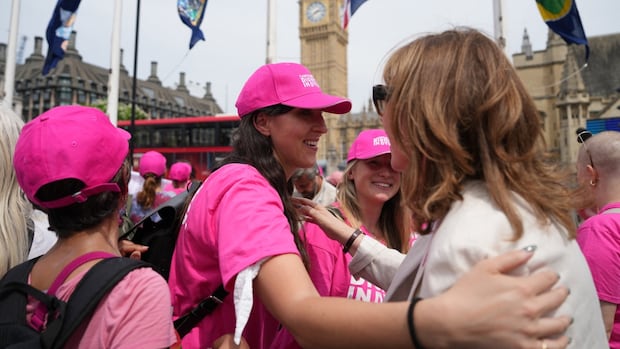Britain’s Parliament voted on Friday in favour of a bill to legalize assisted dying.
The result came after hours of emotional debate and references to personal stories in the chamber, and it followed a vote in November that approved the legislation in principle. This vote was closer: 314 lawmakers in favour with 291 against the bill, compared to a 330-275 split eight months ago.
The “Terminally Ill Adults (End of Life)” law would give mentally competent, terminally ill adults in England and Wales with six months or less left to live the right to choose to end their lives with medical help.
The vote puts Britain on course to follow Australia, Canada and other countries, as well as some U.S. states, in permitting assisted dying.
Supporters say it will provide dignity and compassion to people suffering, but opponents worry that vulnerable people could be coerced into ending their lives.
Emma Bray, who has motor neurone disease, said she hoped the result would help people in her condition.
Bray, who is 42 and has two children, said she plans to starve herself to death next month to help relieve the pain after being told she only has six months to live.
“This result will mean that people will not have to go through the same suffering I have faced,” she told Reuters.
‘A dark day for our country’: priest
The bill now proceeds to Britain’s upper chamber, the House of Lords, where it will undergo months of scrutiny. While there could be further amendments, the unelected Lords will be reluctant to block legislation that has been passed by elected members of the House of Commons.
Prime Minister Keir Starmer’s Labour government was neutral on the legislation, meaning politicians voted according to their conscience rather than along party lines. Starmer had previously said he was in favour of allowing assisted dying.
Opponents of the bill had argued that ill people may feel they should end their lives for fear of being a burden to their families and society, and some lawmakers withdrew their support after the initial vote last year, saying safeguards had been weakened.
John Howard, a Catholic priest who led about a dozen people in prayer outside Parliament while voting took place, said he worried that some people would be forced to end their lives early under pressure from family members.
“I feel great sorrow and concern, particularly for the most vulnerable and disabled,” he told Reuters. “This is a dark day for our country.”
In the original plan, an assisted death would have required court approval. That has been replaced by a requirement for a judgment by a panel including a social worker, a senior legal figure and a psychiatrist, which is seen by some as a watering down.
The Labour lawmaker who proposed the bill, Kim Leadbeater, said that the legislation still offered some of the most robust protections in the world against the coercion of vulnerable people.
“I am fully confident in the bill,” she told the BBC after the vote. “The safeguards are extremely thorough, extremely robust, and I’m confident that this will help the people it needs to help.”
Lawmakers in the United Kingdom voted in favour of a bill to allow terminally ill adults in England and Wales to end their lives with medical help, legislation that has stirred up a national debate about dignity in death and end-of-life care.
Opinion polls show that a majority of Britons back assisted dying in principle.
Hundreds of campaigners both in favour and against the legislation gathered outside Parliament on Friday to watch the vote on their mobile phones.

